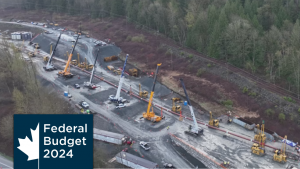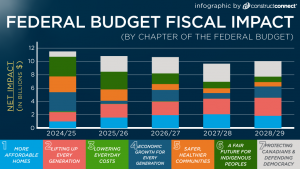Contractors and others in the building industry across Canada have reason to keep an eye on prompt payment reforms in Ontario because authorities in other provinces and jurisdictions are looking to follow suit.
The measures to assure timely payments can have a notable impact on the industry, reforming how the industry’s players conduct themselves, states Howard Krupat, a partner at DLA Piper Canada LLP.
Krupat, who moderated a panel on lessons to learn across Canada from prompt payment reforms in Ontario, said changes in behaviour will be driven by each party’s need to meet the Construction Act’s deadlines for prompt payments and processes plus “the prospect of adjudication and the remedies that are available.”
The end goal?
“You wind up with timely payments…fewer disputes, fewer issues that aggregate and turn into one of those big, expensive arbitration and litigation processes.”
The webinar, which was part of the 13th annual national symposium on Managing Risk in Construction Contracts and Projects hosted by the Canadian Institute, consisted of presentations by a panel of lawyers from various provinces.
It covered some of the key prompt payment and adjudication reforms in Ontario, which has taken cues from measures implemented in the U.K.
Ontario’s reforms were brought into effect in October 2019, but for many contractors and others in the building industry the rules are still new and misunderstood.
Saskatchewan and Nova Scotia have passed similar legislation, Quebec is testing a framework through pilot projects, federal legislation has been passed and Alberta introduced its act last fall.
Panellist Bill Deley, senior counsel with GHD of North America, said there is a misconception in the industry that prompt payment means pay when paid. Regardless of whether a contractor has been paid or not, they still have to pay their subcontractor by the 28th day under reforms in Ontario.
Contractors not in compliance could face “significant consequences,” adds Krupat.
If, for example, the contractor doesn’t deliver a notice of non-payment to its subcontractor and decides against taking the dispute up with the owner through adjudication, “there is no going back,” he said.
“You have made the decision to take on the obligation to pay your subcontractor without any recourse under the statute.”
It means the contractor has a statutory obligation to make the payment or deliver a non-payment notice and refer the dispute to the owner for adjudication, Krupat added.
He said it is different from pre-reform times when these types of issues only had contractual deadlines.
Barbara Capes, assistant general counsel with Kiewit Canada, said there is reluctance in the industry to even file notices.
“It isn’t meant to be an adversarial process but we do need to have a common understanding…and how we’re going to deal with it ahead of time in order to be proactive.”
Deley said all parties need to have a “transparent” dialogue at the contract negotiation stage.
“Make sure everybody’s expectations are aligned and everybody understands how you are going to deal with a situation if it comes up.”
Paul Dipede, general counsel with Corebuild Construction, added it is easier for all parties to conduct their day-to-day operations if the prompt payment requirements are outlined in the contract.
It is especially important for small subcontractors, Dipede said.
“If you just put a blanket statement ‘as per the act’ in your (contract) draft, it requires the subcontractor to go to the act to see what the requirements for payment are. That can be problematic and costly for the subcontractor.”











Recent Comments
comments for this post are closed